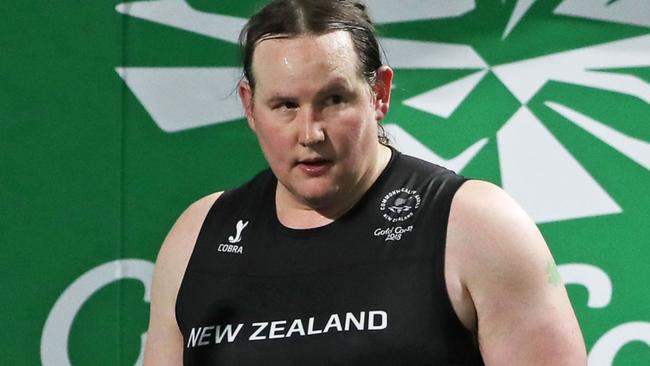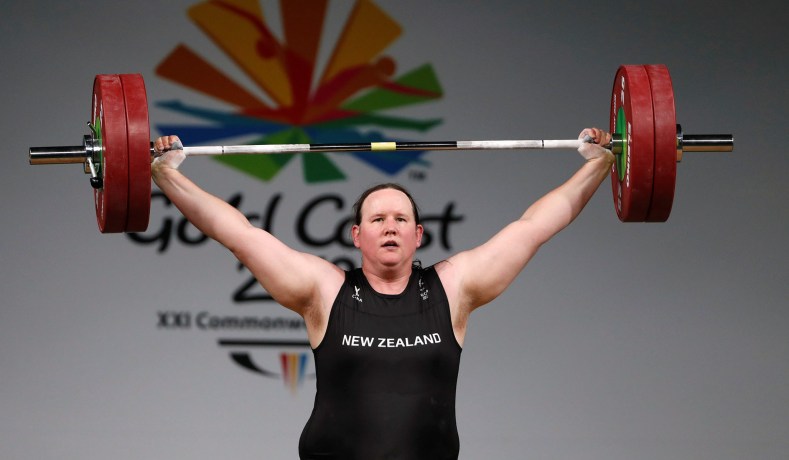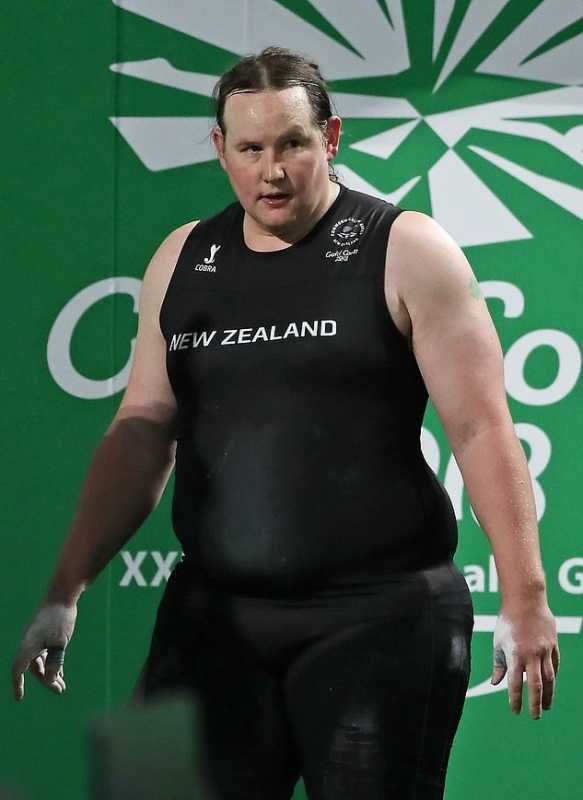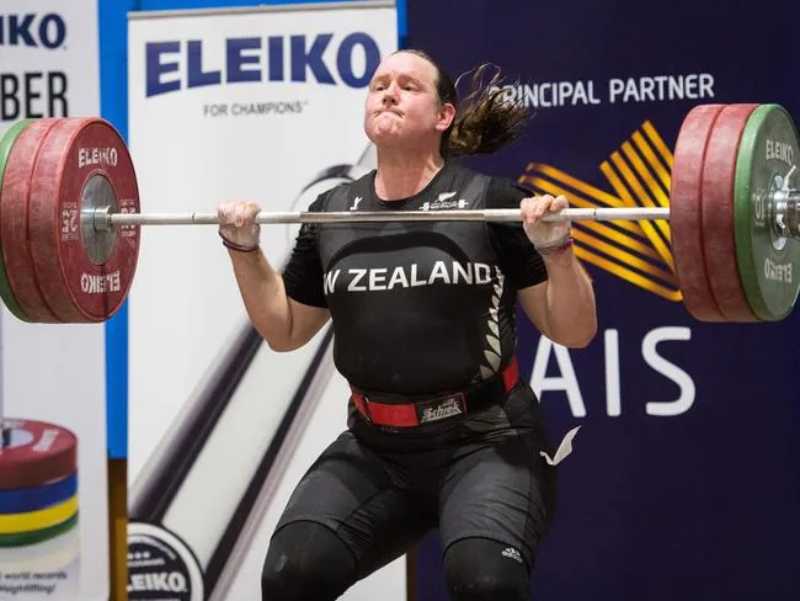Laurel Hubbard Makes History as First Transgender Athlete to Compete in the Olympics

In a historic milestone for both the sporting world and the LGBTQ+ community, New Zealand weightlifter Laurel Hubbard is set to become the first openly transgender athlete to compete in the Olympic Games.
The announcement came on Monday from the New Zealand Olympic Committee, revealing that Hubbard will represent the nation in the women’s 87-kilogram weightlifting category at the upcoming Tokyo Olympics.

Hubbard, who is 43 years old, secured her spot in the Tokyo Games earlier this year following a significant rule change that paved the way for her participation.
The rule modification, which took effect in May, effectively guaranteed Hubbard a place in the super heavyweight category, marking a remarkable comeback for the athlete after a severe injury in 2018.
“I am grateful and humbled by the kindness and support that has been given to me by so many New Zealanders,” Hubbard expressed in a statement.
Reflecting on her journey, she recounted the challenges she faced after breaking her arm at the Commonwealth Games three years ago, an injury that led to predictions that her weightlifting career might be over.
“Your support, your encouragement, and your aroha carried me through the darkness,” Hubbard added, using the Indigenous Maori term for “love.”
The inclusion of Hubbard in the women’s weightlifting category has intensified ongoing debates about transgender athletes in sports.
The issue remains contentious, with numerous U.S. states contemplating legislation that would ban transgender women and girls from competing in women’s sports, and several states already enacting such bans earlier this year.

Hubbard’s journey has not been without controversy. In 2018, during the Commonwealth Games held on the Gold Coast, Australia’s weightlifting federation sought to block her participation.
However, their attempt was unsuccessful as the organizers allowed Hubbard to compete. More recently, Belgian weightlifter Anna Vanbellinghen criticized Hubbard’s qualification for the Tokyo Games, calling the situation “unfair” and “like a bad joke.”

Hubbard’s path to the Olympics began in 2013 when she transitioned from competing in men’s weightlifting events to the women’s category.
Since 2015, the International Olympic Committee (IOC) has allowed transgender women to compete in women’s events provided they meet specific criteria, including maintaining testosterone levels below 10 nanomoles per liter for at least 12 months prior to their first competition.
Hubbard has met these requirements, and her eligibility has been confirmed by the International Weightlifting Federation, the IOC, and the New Zealand Olympic Committee.

Kereyn Smith, CEO of the New Zealand Olympic Committee, addressed the sensitive nature of gender identity in sports in the official statement.
“We acknowledge that gender identity in sport is a highly sensitive and complex issue requiring a balance between human rights and fairness on the field of play.”
“As the New Zealand Team, we have a strong culture of manaaki and inclusion and respect for all,” Smith said. “We are committed to supporting all eligible New Zealand athletes and ensuring their mental and physical wellbeing, along with their high-performance needs, while preparing for and competing at the Olympic Games are met.”
Laurel Hubbard’s Olympic Journey Ends in Disappointment After Three Failed Lifts in Women’s +87kg Weightlifting Final
Laurel Hubbard’s historic Olympic journey met an untimely end today as she was eliminated from the women’s +87kg weightlifting final after three unsuccessful attempts, each involving a lift of 125 kilograms.
Hubbard, who made headlines as the first openly transgender woman to compete in the Olympic Games, took the stage in Group A of the women’s +87kg weightlifting competition with high hopes and significant attention from around the world.
The 43-year-old New Zealand athlete faced immediate challenges, as her Olympic debut was marred by a series of unsuccessful attempts.
Her initial attempt at lifting 120 kilograms in the snatch category was unsuccessful. Hubbard, struggling to complete the lift, dropped the barbell behind her while attempting to stand. Determined to improve, she and her team decided to increase the weight for her second attempt to 125 kilograms.
Though Hubbard appeared to complete the lift, the judges voted 2-1 against it. In the face of this decision, her team opted not to request a video review, a choice that would ultimately curtail her Olympic ambitions.
With one final chance to secure a successful lift, Hubbard again attempted 125 kilograms. Unfortunately, her efforts fell short as she dropped the barbell once more, resulting in three failed attempts and the end of her competition.
This sequence of events meant that Hubbard could not advance in the standings, concluding her Olympic campaign earlier than she had hoped.
Despite the setback on the platform, Hubbard’s presence at the Tokyo Games was a landmark moment for transgender athletes.
Her participation was celebrated by many as a significant step forward for inclusivity and representation in sports. Before leaving the platform, Hubbard took a moment to express her deep appreciation for the support she received from her supporters and those back home.
“I am incredibly grateful for the support and love from everyone who has been with me on this journey,” Hubbard said. Her message underscored the personal significance of her Olympic appearance, even amidst the professional disappointment.
Laurel Hubbard’s impact transcends her performance at these Games. Her participation has sparked discussions about transgender athletes and the evolving landscape of sports regulations.
While today’s results were not as she had hoped, her Olympic debut has undeniably opened doors and contributed to a broader dialogue on inclusivity in competitive sports.
The weightlifting community and sports fans worldwide will undoubtedly reflect on Hubbard’s historic journey and the broader implications it holds for the future of athletics.
